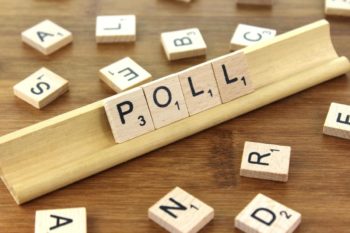
(Credit: http://nyphotographic.com/)
In a recent Washington Post article, Colbert King wrote that “the views of rank-and-file Republicans, captured in voter surveys, are nothing less than galling.”
His concern was a new national poll conducted by Ipsos that reported 43% of Republicans agreed with the statement that “the president should have the authority to close news outlets engaged in bad behavior.”
The poll also showed that 23% of Republicans agreed with the statement “President Trump should close down mainstream news outlets, like CNN, the Washington Post, and the New York Times.”
Sam Stein, writing in The Daily Beast, which first reported the poll results, said the findings “present a sobering picture of the fourth estate.” He wrote that Republicans are “far more likely to take a negative view of the media,” noting that 48% said they believed “The news media is the enemy of the American people.” Still, he noted, “swaths of self-identified Democrats and Independents supported anti-press positions as well.”
At this point, it’s important to note some more positive poll findings. The good news, according to Ipsos, was that
“the large majority of Americans, 85%, agree that ‘Freedom of the press is essential for American democracy.’ Additionally, two-thirds (68%) say that ‘reporters should be protected from pressure from government or big business interests.’ Majorities of both Democrats and Republicans agree with these two statements, signaling deep support for the concept of freedom of the press.”
And as I explain below, the poll’s findings about public perception of the media are clearly overstated.
Thus, there is this complicated picture of the public, which seems to give widespread support to the First Amendment, but then expresses views which contradict what the First Amendment guarantees.
This discrepancy is nothing new. For more than seven decades, research has confirmed that the vast majority of Americans will express support for freedom of the press/speech in principle, but often express only tepid support, and even opposition, for that principle in specific circumstances.
Previous Polling on the Public’s Views of the First Amendment
One of the earliest studies to remark on this discrepancy is a 1970 article in Public Opinion Quarterly (Vol.34, p. 483), by Hazel Erskine, with a clear conclusion: “Americans believe in free speech in theory, but not always in practice.”
Since then, numerous polls and studies have documented examples where significant segments of the public have taken an anti-free speech/press stance.
- In 2015, for example, Pew reported “40% of Millennials OK with limiting speech offensive to minorities.” For this particular issue, Democrats (35%) were about twice as likely as Republicans (18%) to say that government should be able to prevent people from making public statements offensive to minority groups.
- In 1997, 26% of Americans disagreed with the statement that “Newspapers should be allowed to endorse or criticize political candidates.”
- In that same poll, 53% of Americans disagreed with the statement that “People should be allowed to display art in a public place that has content that might be offensive to others.”
- In 2006, 40% of Americans said “the press has too much freedom to do what it wants.”
- In that same poll, 39% of Americans disagreed with the statement, “Newspapers should be allowed to freely criticize the U.S. military about its strategy and performance.”
If taken literally, these results could also be described as “sobering” or even “galling,” but the fact is there are numerous other examples over the years showing large numbers of Americans at odds with rights guaranteed by the First Amendment. Depending on the issue, sometimes it’s Republicans and sometimes it’s Democrats who are the most critical.
Yet, for the most part, what the public thinks about any specific issue doesn’t seem to matter. It’s the courts, and our elected leaders, who the framers expected to protect Constitutional rights.
Public Skepticism of the Press Probably Overstated
All of the poll findings noted above reflect “top-of-mind” views, rather than opinions people hold strongly. In poll settings, where large number of questions are asked (more than 80 questions in the Ipsos poll, for example), respondents do not have time to seriously consider the implications of their response to one question before going on to the next question.
Ipsos did ask each respondent to indicate if they felt “strongly” or “somewhat” about each answer, to help differentiate top-of-mind responses from more anchored views. But then, in reporting the results to the public, Ipsos and all other media outlets combine both categories. Only if we consult the tables can we see how many people feel strongly about their views.
The tables with the intensity measure produce far less troubling figures. Just 18% of Republicans (not 48%) feel strongly that the news media are the enemy of the public, while 12% strongly disagree. The rest are either unengaged, or perhaps ambivalent about the issue, given their widespread agreement on the one hand that “freedom of the press is essential for American democracy,” and on the other the criticism of their party’s president that the press is an enemy of the public.
Similarly, 23% of Republicans (not 43%) strongly agree the president should close news outlets with bad behavior, while 18% strongly disagree. And just 11% of Republicans (not 23%) feel strongly that Trump should close down certain mainstream media organizations, while 31% strongly disagree.
The percentages based on people who feel strongly about the issue seem a lot less alarming than the original numbers, which include top-of-mind reactions from respondents.
The real concern these days, however, is not so much public opinion on First Amendment rights, but what our elected leaders and the courts will tolerate from other leaders who want to curtail those rights.
It’s the lack of action by such leaders to defend the press that is really galling, and presents a sobering picture for the fourth estate in America.





Comments Terms and Conditions